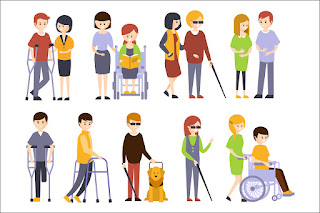Patients with disabilities are 11 times more likely to die from Covid-19 than their able-bodied peers. That’s a sobering statistic. And it’s why public health officials have prioritized these vulnerable patients for vaccinations.
Unfortunately, when it comes to non-Covid matters, society doesn’t always show the same concern for these patients. In fact, many states and private insurers are pushing for a “reform” that could deprive Americans living with multiple sclerosis, cerebral palsy and other disabilities of life-saving medicines.
The reform relies on a metric known as a “quality-adjusted life year.” These QALYs supposedly quantify the “cost effectiveness” of drugs by assessing the “quality” of an individual’s life. The use of QALYs should concern every American, but especially those living with disabilities or battling chronic illnesses.
When this metric is utilized, a drug that delivers one year of “perfect” health receives one QALY. A drug that provides a benefit – but doesn’t return a patient to “perfect” – receives a fraction of a QALY. So, by design, QALYs devalue important treatments for chronically ill and disabled patients.
Since even breakthrough drugs will not restore perfect health in those patients, this puts them at a distinct disadvantage when it comes to accessing life-saving or life-improving drugs and medications. While there is no cure for blindness, MS, or cerebral palsy, new drugs can still dramatically improve patient well-being and longevity.
The British national health system regularly employs this tactic to deny coverage for advanced new therapies for chronically ill and disabled patients. Unfortunately, these assessments are gaining traction in the United States. The biggest advocate is the Institute for Clinical and Economic Review – or “ICER” – an influential Boston-based organization.
ICER’s evaluations impose brutally simplistic categories on complex diseases. For instance, the institute splits patients with spinal muscular atrophy that have received treatment into three rudimentary categories: mobile, requiring ventilation and dead. That classification is offensively reductive.
Worryingly, the institute has become very effective at getting large health insurers to utilize its metrics in their coverage decisions. And now New York health officials have begun using ICER metrics in their state-run Medicaid program, specifically to clamp down on access to advanced cystic fibrosis treatments.
To truly protect the health of the one in four Americans living with disabilities today, policymakers must work to ensure that those most deserving of new medicines are able to access them.
Angela F. Williams is president and CEO of Easterseals, a provider of services for people with disabilities, veterans and seniors.
Stay informed with MS news and information - Sign-up here
For MS patients, caregivers or clinicians, Care to chat about MS? Join Our online COMMUNITY CHAT




